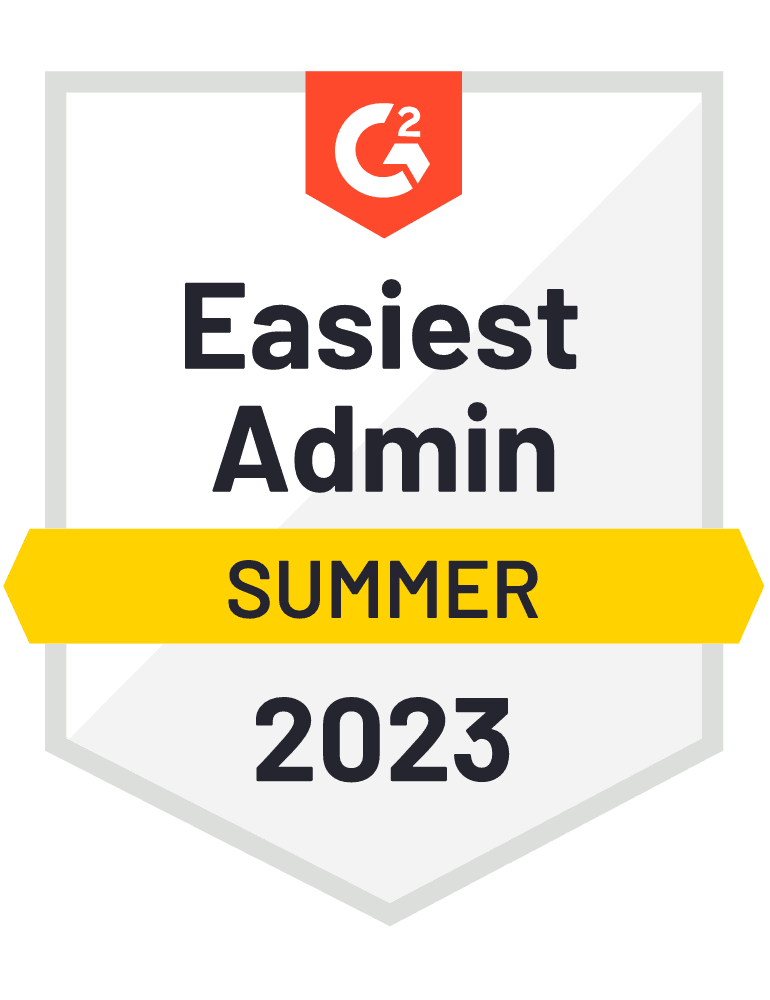10 Strategies to Improve Call Center Agent Performance

A strong call center is the backbone of a company. After all, customers often make purchase decisions based on how well-treated they feel – regardless of how great the product is.
And how can you guarantee that great treatment?
By providing the best agents.
Without skilled and high-performing agents, you risk losing clients, your reputation, and your revenue. To be successful, call centers need to boost agent performance.
But how?
Read on to learn 10 strategies you can use to boost agent productivity.
10 ways to increase productivity in call center.
1. Create a detailed SOP
It’s hard to get to a new destination without a good map.
A great SOP (Standard Operating Procedure) is an internal guide with a set of written instructions. It’s used to describe all important processes step-by-step so that your team can always refer to them and know what steps they need to take to perform certain tasks.
In other words, create a long, detailed, easy-to-understand guide on a platform like Notion or Google Documents (so that all team members can see changes immediately) and make sure everyone is aware of how to find this document and how to search inside it most efficiently.
Include everything that you can think of: processes for certain scenarios, who to contact and when, what’s the refund policy, features of the products, FAQs, and so on. You can organize these into different sections and even add links to further resources.
A well-written SOP is not only useful for onboarding (your newcomers can still learn while you need to spend time on other duties!), but it also helps your veteran agents dust off their knowledge.
What’s more, it improves customer satisfaction.
How?
Imagine your agent gets a question they’re either not sure about or forgot. If you add a link to the SOP to their script, without seconds they’ll have the guide in front of them. Then, they just need to hit Command + F and find the right information that they can even read off their screen while on the phone.
2. Offer a clear career path
Nothing is more demotivating than wondering if you’re at a dead-end.
And while call center jobs can be extremely beneficial for one’s future career progression, your agent might not know that.
The stereotypes (even Hollywood!) always paint the picture of a burnt-out call center agent. And while we’d lie if we said that the job is easy, it does hold a great future for those who look at the bright side of it.
Research shows that many call center agents get promoted within 6 months, and have a greater chance to move to higher positions inside the company where they work.
Besides, a contact center job teaches many valuable skills: communication, empathy, quick thinking, problem-solving, adaptation, persuasion, and many more.
These skills are highly valuable for any future profession!
It’s your job to highlight this to your call center agents.
If your company allows it, establish milestones so that your agents know what they need to achieve (KPIs, amount of time at the company, and so on), to get a bonus, a salary raise, or even get promoted to a higher position.
This will certainly boost morale, which in turn will make your agents more productive.
We need to see the bigger picture in order to thrive.
3. Empower your agents with the best technology
Even the most motivated and efficient agents are less productive if they use outdated or complicated IT systems and processes. If the learning curve is steep, or the technology is simply too slow and misses essential features, your agents won’t be able to get into the flow that they need for optimal performance.
Most call centers need to use various databases, including sales software, CRM, or helpdesk tools. If all of these need different software and open in different windows, the process slows down your agents. It’s highly distracting and confusing.
The solution? Switch to a modern-day, cloud-based call center software that they can be productive with, even if they work from home.
User-friendly cloud-based call center solutions can be integrated with all your other business tools, so you can eliminate frustration and make information more accessible. Our pick? CloudTalk.
4. Create detailed call scripts
We’ve talked about the importance of sales call scripts many times before – it truly makes a difference.
With a well-written call script, your agents have all the information in front of them: What to say, who the client is, what some common objections might be, and links to further resources.
It’s certainly a game changer for sales teams, but even customer support teams can highly benefit from them.
With modern-day call center software, you don’t even need to manually open such a script: it will automatically open up on your agents’ screen as soon as they start dialing or pick up an incoming call.
Just like in the case of an internal SOP (which you should link to in your call scripts!), having a quality script can both make your agents’ work easier and faster, and improve customer satisfaction.
Do you want to know how you can create your own script? And even get a few ready-for-you scripts? Check out our blog post on sales call center script templates!
5. Use Skill-Based Routing and IVR to segment customers
Nothing slows down performance more than the poor distribution of inbound calls.
But, you don’t need to spend extra time on distributing them – nor do you need to hire an assistant for that.
The solution: set up automated skill-based routing and IVR flows for your inbound call centers!
IVR (interactive voice response) is a valuable tool that gathers information about callers before they are connected with the agent.
Let’s say you get an incoming call from a phone number that starts with +44 and one that starts with +52. If the feature is set up, the first call would automatically go to an English-speaking agent and the second call would go to a Spanish-speaking one. This is also known as skill-based routing.
Or, the manual way: A customer calls your number, but before getting connected to an agent, they are prompted with a menu. If they press 1 on their dial pad, they get connected to the Finance department. If they press two, they’ll be taken to Sales. If you’ve ever contacted the customer support of a well-known company, you know how it works.
Having skill-based routing and an IVR flow saves you tremendous amounts of time and makes your agent more efficient. If all callers get connected with the right agent without having to go through a chain of call transfers, your agents will need less time to solve problems, and your customers will be happier with the service.
It’s worth mentioning that IVR and call routing also help you eliminate unwanted or redundant calls. For example, you can block undesirable phone numbers, or set up pre-recorded messages under some of the IVR menus.
Another great way to reduce the number of incoming calls is to create an FAQ or knowledge base section on your website so that customers find answers themselves.
6. Record and monitor calls
Unless you run into any specific issues with this in your country or industry, you should always record phone calls between your (potential) customers and your agents.
There are multiple uses for this.
First: you can protect your teams from callers with bad intent. Some callers might not be happy with your services or simply aren’t aligned with your business values, and might file unreasonable complaints. This can put your agents in a bad position, and without proof (a recorded phone conversation), they might not be able to prove that they didn’t do anything wrong. If your agent needs to worry about getting punished for something they didn’t do, it brings down morale and definitely affects performance.
Second: You’ll always have agents that perform especially well. Store these recordings and use them for agent onboarding. Learning from a great, real-life example can be a great way to get your newcomers or lower performers up to speed.
Third: You need to trust your agents. But, if they know that there is no way to hear how they talk on the phone, they might not take every phone call seriously. By randomly listening to past phone conversations (or monitoring ongoing ones), you can stop bad performance and offer correction before it’s too late.
Of course, not every software is capable of call recording and monitoring. What can we say? CloudTalk is. 😉
7. Re-examine your metrics and KPIs to make data-driven changes
How do you know whether your agents are productive without metrics and KPIs in place? Make sure your goals are clear and that all agents know why and how that metric is measured.
For example, you can measure customer satisfaction, new sales, first-call resolution rate, occupancy rate, and so on.
When selecting the right call center software, make sure it can provide you with statistics and real-time data that you can use to uncover problems that hinder agent performance.
Call center managers should review the data regularly and make necessary changes.
Unsure what metrics and KPIs you should be tracking? Check out our blog post on 5 call center metrics for successful benchmarking.
8. Implement continuous training for agents at every level
Training shouldn’t end with the onboarding process.
Your long-term agents also need continuous training to refresh their existing knowledge, understand all updates about the product, and improve the skills that make them great at their job.
The lack of opportunities for continuous learning and growth can leave most of your agents feeling demotivated, and your customers will also notice the less-than-stellar performance when they’re asking about a new trend or feature.
Consider organizing regular training focused on common problems. For example, talking to angry customers, handling refunds, different demographics, and the like, to make sure that agents continuously develop their skills.
While it might take more time and resources, think long-term. Education always pays off.
9. Create a healthy environment that encourages team growth
Even if you offer the same level of training, opportunities, and encouragement, some of your agents will perform better than others. It’s important to keep acknowledging high-performers while also motivating those who haven’t been at their best.
Reward successful agents
If you took our advice until this point and set up clear KPIs and call monitoring, you’ll know who your best-performing agents are.
It’s tempting to put even more workload on these people. After all, they are significantly more efficient than others, they get the job done faster while bringing in better numbers for the company.
Look, it’s understandable – after all, the revenue matters the most, and these people can truly help with that.
But, if you fail to truly recognize and reward high performance, your top agents might easily feel like their “reward” for working hard is even more work – while their lazier coworkers can get away with less.
You don’t have to think of anything big – you can even just send them a message or kudos via an app like OfficeVibes, but if the business can afford it, consider small monthly bonuses or gifts.
Research shows that 70% of employees would work harder if they were better recognized.
When agents feel appreciated, they tend to look for ways to improve their performance. And higher performance leads to even better revenue.
Don’t punish lower-performing agents
On the flip side, there are those agents who barely meet their KPIs.
Unless you see no intention for improvement, it would be foolish to immediately get rid of these people without giving them a warning and a chance to improve first.
But remember that not every agent performs badly due to laziness. Many of such agents might just be slower learners or confused with your expectations.
For this reason, it’s especially important to be crystal clear on individual expectations. What’s the minimum KPI your agents should bring to keep your job? Why is this important and how can they achieve it?
Offer one-on-one feedback and training sessions, and ask your better-performing agents to share their best practices. And if you think that would hurt your top agents’ motivation, read on.
Offer team rewards
If you only set up team goals and offer team rewards, your top performers might feel like they don’t have a chance to shine – and your lazier agents might let others do the heavy lifting.
If you only create individual goals and rewards, it creates an unhealthy competition where nobody wants to help each other.
The solution? Offer both!
At the beginning of each month, set up individual and team-level KPIs. Let the team know that 50% of their end-of-the-month bonus will depend on the overall team performance and the other 50% on their own.
This way, you encourage high performance while keeping a healthy, supportive atmosphere. Teams grow better together!
10. Offer two-way feedback sessions regularly
Many studies have shown that the majority of employees want to get feedback at least once a month.
In fact, the lack of feedback tends to make call center agents feel disengaged from their work.
And offering negative and positive feedback is equally important.
92% of respondents agreed their performance improves when they receive negative feedback, also known as constructive criticism.
And to prove our point further: studies show that companies that invest in regular employee feedback have 14.9% lower turnover rates! So, feedback sessions can definitely improve how your call center agents perform.
But, don’t just schedule a call with your agents and tell them what you think of their performance. It’s important to create an open, two-way conversation, and give your agents a safe space to also tell you what they’re happy with and what they don’t like.
It’s best to let your agents know about an upcoming feedback session in advance, so they don’t feel put on the spot and can prepare with some valuable insights.
For example, you can ask your employees to think about these 4 questions before the feedback session:
- What have I been doing well?
- What do I need to improve on?
- What have you been doing well?
- What could you improve on?
Let them know that you’ll also prepare your answers to these four questions, and they can decide which one of you should start with the answers, and in which order.
Offering such regular, open and punishment-free space will boost morale and agent performance.
How do you keep your call center agent performance high?
As you can see, a high-performing agent is also a happy one. Feeling motivated and inspired by one’s job, and having the right technology to get into the flow state is crucial to doing an exceptional job.
If you want to help your agents be more efficient, don’t forget to create an environment in which they enjoy working.
Ready to boost performance with modern-day technology that enables productive remote work?
Frequently Asked Questions:
-
How to improve call center agent performance?
Experienced call center agents are an essential part of a positive customer experience. Here are 10 tips on how to improve call center agent performance:
1. Create a detailed SOP
2. Offer a clear career path
3. Empower your agents with the best technology
4. Create detailed call scripts
5. Use Skill-Based Routing and IVR to segment customers
6. Record and monitor calls
7. Re-examine your metrics and KPIs to make data-driven changes
8. Implement continuous training for agents at every level
9. Create a healthy environment that encourages team growth
10. Offer two-way feedback sessions regularly -
How to improve call center performance
How to improve call center performance
1. Choose the best call center software for work
2. Provide regular training to your agents
3. Use features call routing and IVR to segment customers
4. Analyze call and texts and share the best practices
5. Focus on the employees’ needs
6. Reward successful agents -
How to evaluate call center agent performance?
To evaluate call center agents’ performance, you need to choose appropriate metrics and KPIs. Here are 7 aspects of tracking:
1. Track average handle time
2. Track the average call abandonment rate
3. Monitor the customer satisfaction score
4. Track the average waiting time of customers
5. Monitor agent occupancy rate
6. Track average response time
7. Monitor service level -
How to become a good call center agent
1.Train your communication and social skills
2. Be emotional stable
3. Be able to handle pressure
4. Have emphaty
5. Motivation for improving
6. Accountability
7. Flexibility
8. Efficiency and speed
9. Creative problem solving -
What makes a successful call center agent?
1. Communication and social skills
2. Ability to handle pressure
3. Efficiency and speed
4. Creative problem solving
5. Ability to multitask
6. Emotional stability
7. Knowledge Retention and Recall





















